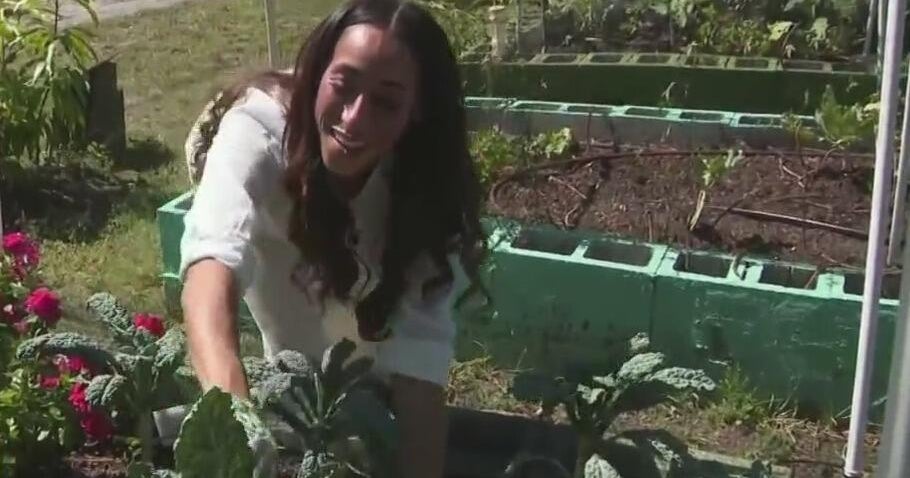What may have looked like just another patch of green in Pinewood, near Little Haiti, turned out to be something far more powerful, a vibrant urban garden and the beating heart of a movement called Health in the Hood.
Founded by Asha Walker in 2013, the nonprofit aims to address food insecurity in communities often overlooked by traditional grocery chains.
“It was really a response to the disparities that exist in food deserts, neighborhoods that have no access to fresh food, or are completely cut off from it,” Walker explained.
The United States Department of Agriculture defines food deserts as areas located more than a mile from the nearest grocery store. Growing up, Walker saw firsthand how these neighborhoods struggled to access healthy options.
“My father had an idea to start urban farms, so I sort of always grew up in this setting, knowing that you can transform communities through urban gardens by providing nutritious food,” she said.
Benefits beyond the garden
Health in the Hood is more than just about planting seeds, it’s become a hub for education. Walker built upon her father’s vision by incorporating gardening lessons, cooking classes and community outreach.
One recent initiative in Wynwood partnered with local women’s shelters to distribute grocery bags to single mothers and their children.
“So, every month, we provide thousands of pounds of food to families,” Walker said. “We rely on local food banks, donations, food from our gardens, and we distribute 16,000 pounds of food to 230 families. We did that in partnership with Amazon.”
From concrete to collards
The garden is filled with rows of collard greens, kale, peppers, okra and more.
Just five years ago, the space had been nothing but concrete and weeds.
“We have families that come out to this day and say, ‘Gosh, for so many years we looked at this and thought what an eyesore’. And now, five years later, it’s growing fresh food’,” Walker said.
She pointed to the collard greens and said, “These are going to be our last beautiful collards, but these are one of the most nutrient-dense crops you can cook, and they’re really culturally appropriate.”
Every week, Walker’s small but mighty team harvests the garden’s bounty and gives it away for free. For residents like Lolita Bryant, whose mother relies on Health in the Hood, this program means peace of mind.
“She’s up in age, so being able to have access to something like this, something she doesn’t have to go to the store to spend money on, she can use that money for other things. This is an amazing opportunity,” Bryant said.
The ultimate goal for Health in the Hood is to expand into every food desert across South Florida. Whether through corporate partnerships, community support or volunteer efforts, they’re planting the seeds for change.
Send us your story at [email protected]



